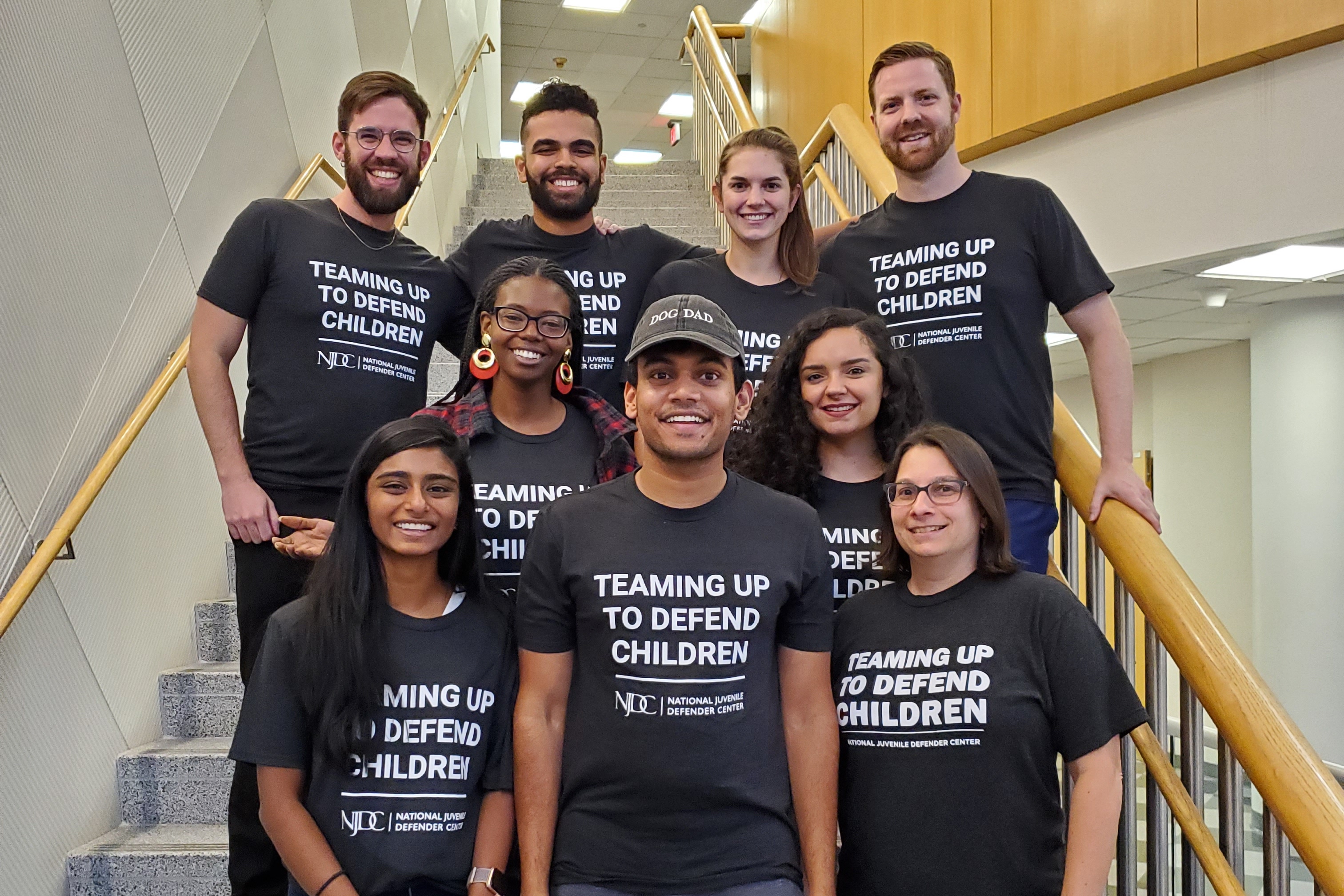The Barton Juvenile Defender Clinic (JDC), a clinical offering of the Barton Child Law & Policy Center, is an in-house legal clinic dedicated to providing holistic legal representation for children in delinquency and status offense proceedings.

Overview
The Juvenile Defender Clinic is open to second- and third-year law students who are admitted to practice law under Georgia's Student Practice Act. Student attorneys represent child clients in juvenile court and provide legal advocacy in the areas of school discipline, special education, mental health, and public benefits, when such advocacy is derivative of a client’s juvenile court case. Students may also engage in research and participate in the development of public policy related to juvenile justice issues.
Goals
By allowing students to work directly with clients and take responsibility for the caseload, the Juvenile Defender Clinic aspires to help students understand the impact of the legal system on a community. Students will establish attorney-client relationships with the youths and learn to be responsible for all aspects of the client representation. Specific goals include:
- To train law students to become skilled, ethical, and reform-minded professionals
- To provide highly effective representation to the clinic’s clients
- To teach law students how to think independently, synthesize facts and legal principles, and plan litigation strategies
- To improve an adolescent’s chance of becoming a productive citizen
- To develop a law student’s ability to analyze the substantive law and apply it to the practical courtroom experience
- To help law students understand the impact of the legal system on a community.
Student attorneys are to uphold the principles of juvenile defense attorneys. The goal is to advocate zealously for the client, focusing on the wishes of the youth, not the parents. Students are also expected to demonstrate professional responsibility and to develop oral and written advocacy skills during the course of the semester. Students will also develop practice management, a thoroughness of case analysis, and implementation and reflective skills.
Academic Requirements
The Barton Juvenile Defender Clinic is open to second- and third-year law students who are eligible to practice under Georgia’s Student Practice Act.
Students working in the JDC will represent clients in juvenile delinquency proceedings and related matters. They may also work on current legal and policy issues affecting juveniles in the justice system. Students will prepare cases and conduct investigations. For three hours of graded credit, students work a minimum of 150 hours in the clinic.
Student attorneys participating in the JDC are expected to put in as much time as is required to successfully represent juvenile clients. Students must have the flexibility to attend evening and weekend meetings, to meet with clients after their school days have been completed, and to work within the parameters of the schedules of busy, working parents. Students must be prepared to meet all responsibilities as representation demands, just as any responsible professional must.
Students are required to keep regular office hours. Obligations for the weekly schedule include case collaboration, supervisory meetings, and weekly JDC meetings. Each student also will prepare comprehensive and detailed weekly field notes to provide opportunities to clarify in writing a sense of the work being done and reactions to advocacy experiences.
Final grades in the JDC are based on
- Applying professional skills
- Quality of field notes
- Participation in weekly meetings and supervisory meetings
- Building relationships with clients
- Quality of courtroom advocacy on behalf of JDC's clients
How to Apply
Eligibility: The Barton Juvenile Defender Clinic is open to second- and third-year law students who are eligible to practice under Georgia’s Student Practice Act.
Prerequisites/Co-requisites: There are no pre-requisites or co-requisites. However, priority will be given to students who have taken Kids in Conflict with the Law, Juvenile Law, Family Law, and/or Criminal Procedure.
Clinic Application: Applications will be accepted either through Symplicity (Jobs > Clinics) or by submitting a complete application packet to Prof. Randee Waldman.
The application consists of the following documents:
- Resume
- Transcript
- Writing Sample
- Personal Statement: Describe in detail your interest in participating in the JDC. Identify any special qualifications, academic interests, and career goals that have caused you to apply. Consider including answers to any of the following questions:
- Why are you interested in participating in the JDC?
- What do you hope to gain from your clinical experience?
- What, if any, experience do you have in working with the juvenile justice system?
- What, if any, experience do you have in working with at-risk youth?
- What do you have to offer to your fellow JDC students?
Fall 2026 Clinic Application Schedule
- Application Period: February 9-25, 2026
- Interview Period: Rolling Interviews (Feb 9 – Mar 13)
- Offer Deadline: March 15, 2026
- Deadline to Respond to Offers: March 20, 2026
Please reach out to shreeca.lott@emory.edu with questions